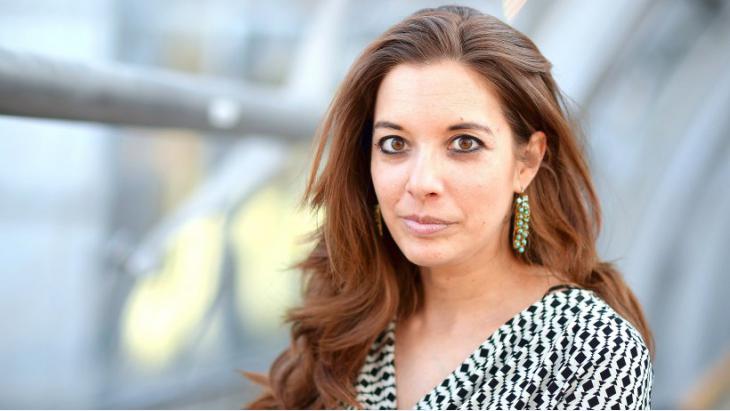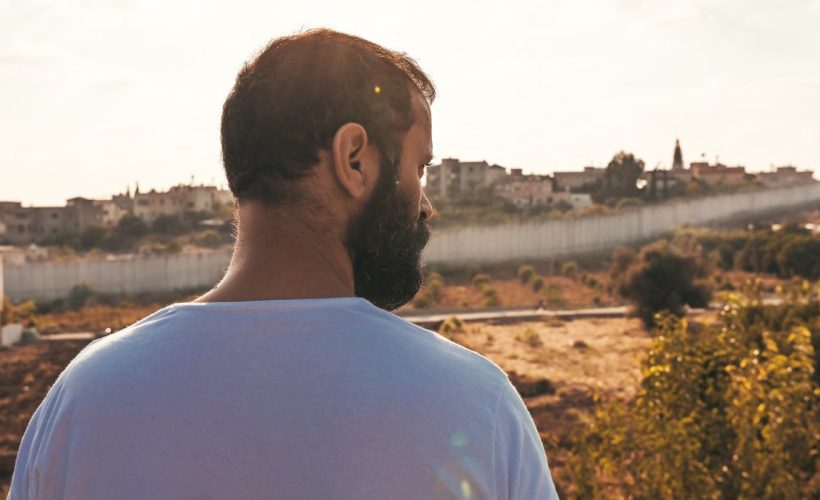Society
10.4.2019
Rasha Khayat: “Our elsewhere”, a nostalgic testimony to the dual culture

With her first novel “Our elsewhere”, translated from German to Actes Sud last April, Rasha Khayat tells the story of a family built between two cultures: Germany and Saudi Arabia. A moving story that gives you the opportunity to travel beyond the clichés.
Born in 1978 in Dortmund, an industrial city in the Ruhr basin, Rasha Khayat spent her childhood far from the harsh winters of northern Germany. She grew up in Jeddah, Saudi Arabia, the country from which her father came and where her family relocated until she was eleven years old. A life in motion that is also found in the trajectories of the protagonists of his first novel.
Double culture and uprooting
Between anecdotal details and milestones, this story is told through the eyes of Basil, a young German man who decides to return to his father’s country (Saudi Arabia) to attend the wedding of his sister who has just left everything to marry a Saudi man. From childhood memories in Germany, from maternal grandparents discovering snow and ice skating on frozen lakes, to observing the increasing urbanization of a city that he no longer recognizes when he returns to Jeddah, the reader remains in the interior of a character who carries within him another culture from which he nevertheless seems completely disconnected. For the latent theme of this work, both light and profound, is always uprooting. The book opens with this quote from Edward Said shared by the author “All these discrepancies in my life have finally taught me to be a little out of step, out of step.” Behind the harmless episodes of life lies the unease that sometimes accompanies those who have a dual culture, between misunderstanding of others and impossible positioning of the self. However, at the end of the narrator’s and reader’s journey, the misunderstanding of the characters gives way to a certain tenderness. The hope of a dialogue finally arrives and the journey takes on its full meaning.
I imagine that this story was inspired by your own childhood memories in Germany, and Saudi Arabia. Why did you choose fiction over autobiographical form?
Although there are elements of me and my youth in this book, the story itself is pure fiction: I am not Layla and I have no desire to move to Saudi Arabia. But I understand her, and I also understand her brother who is perplexed by his decision to return to Saudi Arabia. Writing fiction gives me the freedom to build a story that makes more sense to my characters and readers too. It allows me to take a break and I think it’s very important when you invent a story, otherwise the reader doesn’t follow you on the journey.
There are different narrators in your story. Sometimes Basil tells the story, sometimes he is an external narrator. Why did you choose to adopt all these points of view?
People who move a lot sometimes have the feeling that the elements of their lives are meaningless. I wanted the narrative to reflect the scattered lives of these uprooted people. My story is built like a mosaic of small pieces that only become meaningful when they are put together. Basil is the connecting piece between the story and the reader. Having him as a narrator allows the reader to accompany him on this strange journey, and to be as irritated and disconcerted as he is by the incidents. He is like us, Western readers, and thinks his sister must be crazy to make such a decision by moving to Saudi Arabia. But because he loves it very much, he will try to understand it, which allows the reader to make this effort as well.
The book discusses the trauma faced by uprooted people. What was the most difficult for you when your family moved back to Germany after eleven years in Saudi Arabia?
It was the fact of being separated from our family there, very large and very close. We were many children who grew up together, spending all our weekends and holidays together. In Germany, our family circle was much smaller. Personally, it was difficult for me to understand German children, I didn’t know their games or their references in terms of TV programs, books or music. And also, even if it may seem insignificant, the lack of sun, heat, sea and food. I still miss them today.
In the story, it is about the culture clash between two families: one German Protestant and the other Saudi Muslim. A touching sequence shows Basil going through the family album with his uncle when he comes across his parents’ wedding photo. A memory mixed with happiness and nostalgia. Was it particularly difficult for your parents to get your relationship accepted in the 1970s?
I don’t think it was as difficult as it could have been today. People at that time knew very little about each other. There was not yet the Internet, very little television and the concept of terrorism was not so widespread so people were not particularly afraid of strangers. Sometimes it is better not to know too much, it allows you to be more open and to see people simply as human beings, without stereotypes of race or religion because the media have brainwashed you with fear.
One of the main characters in the novel, Layla, makes a rather powerful statement “The trajectory of my ancestors; the frenzy of their movements underlies the dilemma of my own existence – leaving or staying. “Haraka baraka”, says a saying in Arabic. The movement is a blessing. I guess that’s not always true.” Did you feel like a burden growing up in Germany in the 1980s, half Saudi and half German?
Saying that it was a burden may be a little too strong, but it wasn’t easy. In the 1980s, we lived in a very small town where there were not many foreigners. I was the only girl with a strange name in the class for most of my schooling. I always felt different, but it took me a while to understand that it was related to my heritage. But growing up with this feeling of being external to everything has allowed me to develop good observation skills from a very young age. I have always felt and still feel the need to understand what is happening around me. Which is not a bad thing when you want to be a writer.
She also denounces the lack of a sense of community in Germany, the feeling of loneliness, and the stereotypes she faces. She thinks that freedom is nothing if you are alone. Was it important for you to deliver a message about your country of origin, beyond the clichés?
It has always bothered me that in the Western media, the Arab world always has bad press. And it gets worse every day. These stereotypes, even if some are true, almost always come from the ignorance and arrogance of some. We also have to deal with this on a daily political level. The arrogance of the West, this belief that its way of life is the best, has always irritated me because most people making these judgments have never been to an Arab country. So yes, it was important for me to show these places (not only Saudi Arabia, I also lived in Egypt and I know Lebanon, Syria and Jordan quite well) are not limited to burqas and terrorism. There are many facets to every society and I find it very unfair to see some parts of the world told in such a partial and arrogant way.
Today in Germany, there are many different cultures and there will be even more in the future with the migrant crisis. Do you think it is easier to live in this country with a dual culture today?
Yes and no. On the one hand, it is becoming more and more common for many people to have diverse backgrounds, which is great in itself. But at the same time, the global political climate is not getting any better for people from diverse backgrounds. So I think, at least I hope, that it will take a little while longer before the difference and origins become normal and no longer a problem. But the positive thing is that these people like me, mixed or immigrant, are not going to leave soon. Just by being there and staying, we change the country and society. The fact that I am speaking to you today as a German fiction writer is in itself a big step forward compared to 15 years ago. So let us pray for the best and for society to catch up.
popular

